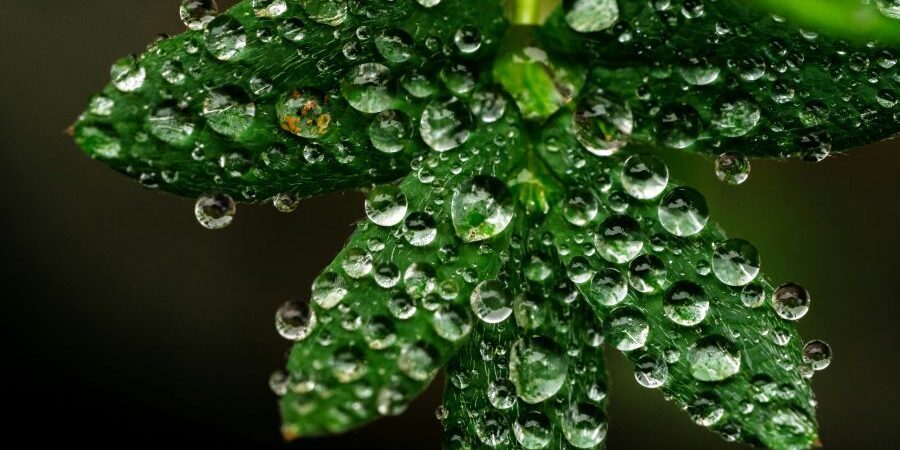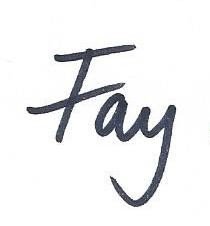I garden in the soil of a song.
Walk barefoot through rows
of sheet music, picking strawberries
from the low notes, peaches
from the high notes. I feed myself
a chorus, and for the first time
in many months, I am full.
But that’s not real, my mind demands,
trusting the seedless machine.
My mind repeats the newscaster’s
teleprompted panic. Repeats
the doctor’s doomsday speech.
There’s no time to not be real, it begs.
I point to my left lung–a satchel full
of tumors. Point to a pantry full of pills
that haven’t helped, a bed I have
hardly left for weeks.
Is this what you mean by real? I ask.
Yes! my mind screams, frantic
in its mission to make matter
all that matters.
But how
is that more real, I say,
than the first time I was breathless
from holding a stethoscope to my pain
and hearing the heartbeat of the whole world?
My mind argues like a seasoned lawyer,
all objection and rebuttals.
But I, an artist, stretch my heart out
into canvas, hand one brush
to joy and another brush to grief,
grinning as I watch them paint
the exact same rolling meadow
the same hue of emerald green.
That isn’t real, my mind insists
as I take off running through
the pasture, stopping only to do
a cartwheel beside a lonely windmill
who has always wanted a friend.
I fly up the solemn staircase
of a billionaire’s lifeless mansion
to replace the diamonds with raindrops
I found huddled on a leaf of a Birch
tree beside my home when
I was nine and a half years old.
It’s not real that you still have those!
my mind protests, as if everything
that ever was isn’t forever here.
As if I’m not still a giggling child
hiding in the place I know my mom will
look first, because I want to be found.
During my CT scan last week
I couldn’t find myself inside of myself
because my mind was louder than I was.
But then I gave up all control, unfurled
like the petals of a pen blooming
poems on the sterile walls,
for the next worried patient to water.
But that’s not real, my mind contends.
Real is provable. Googleable.
Then google this, I say, —
The chemo that kept me alive,
the chemo cold men in white coats
take credit for, is sourced from the bark
of the Pacific Yew tree and was first
discovered for its healing properties
by Two-Spirit Indigenous people
in the Pacific Northwest, who were guided
by the voices of moss and the mist.
Is that real? my mind asks.
I don’t see the point in answering
because my mind can’t hear the language
spoken by the moss, has never
picked the sweetest fruit from the saddest note
of a song and planted every seed
to feed the joy of those to come.
What’s the worst thing that ever happened
to you? my mind asked me long ago.
I said, Not believing in what I couldn’t yet see.
What’s the best thing that ever happened
to you? my mind asked me long ago.
I said, Learning that you are not me.
by Andrea Gibson
Sometimes words feel like an imposition, or a foregone failure. This poem (introduced here by the poet) gives me that feeling. How do I follow it? When I finish reading, I know I’ve received something essential, something precious. It feels like a blessing — one bestowed on my small, human self, which is just a fragment of all humanity. It lifts me into a glowing mixture of beauty and sorrow, swelling into what feels like heart-rending love. Thank you, Andrea Gibson.
Andrea Gibson died last week. That’s how I came across this poem at all. With their passing, their poetry, writing, and life stories have spread further and more swiftly, crossing boundaries and reaching me — and many others. They seem to have written from a place of desperate, beautiful truth-telling, from the insight of someone who knows how fully swept up in impermanence they really are. No space for denial, complacency, distraction, or anything inessential.
The poem also speaks, for me, as a teaching about the mind. One that Andrea seems to have felt compelled to speak urgently before they departed this earth. This is captured with striking clarity in the last lines, but also explored through the drama of their internal dialogue, making it deeply relatable. The lesson? That imagination is an extraordinary resource of wisdom — one we neglect and sideline to our peril. We need to bring it back. Let it speak. It may just save you, though probably not in the way you expect.
Finally, the poem also deepens this lesson by showing how materialistic thinking and behaviour pull us away from both our inner wisdom and the abundance of the wondrous world around us. Which are more precious, raindrops or diamonds?
Ps. Join me for the next Mindfulness Meets Mystical Poetry course beginning 30th October 2025, to be introduced to a wide variety of poetry from many cultures and eras, that teaches us how to be deeply present and takes us beyond our small minds…
Photo by Pedro Netto on Unsplash



